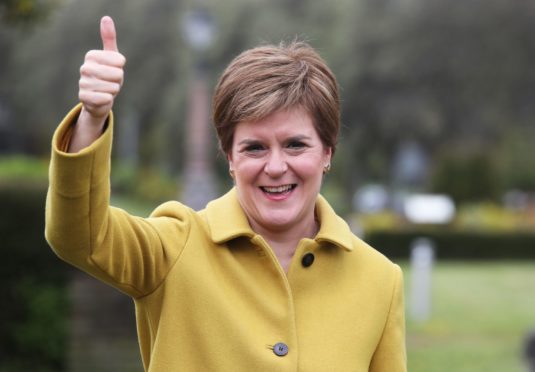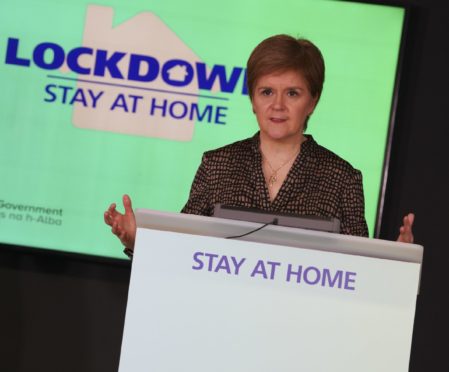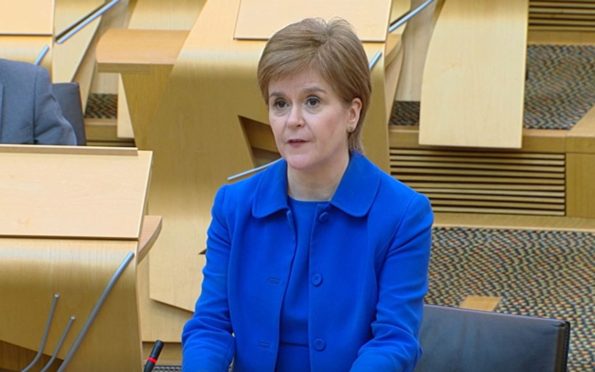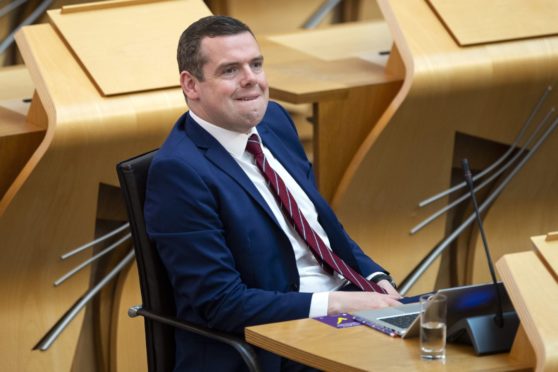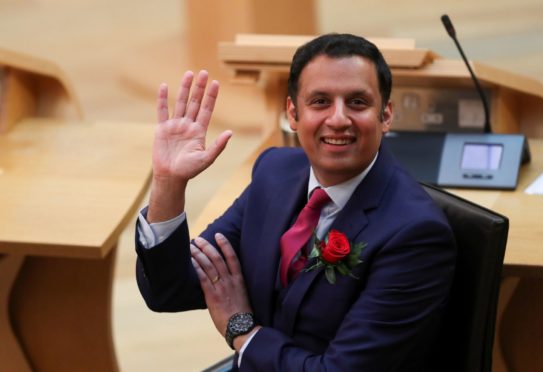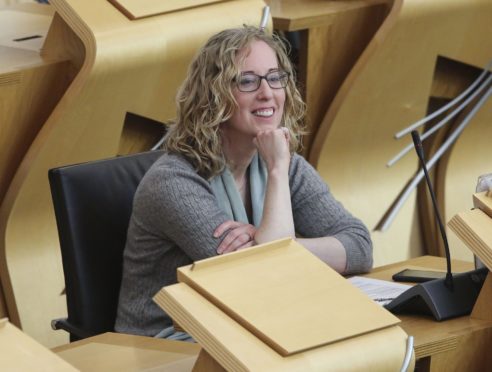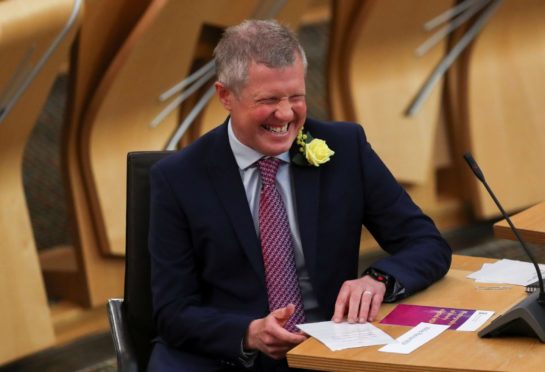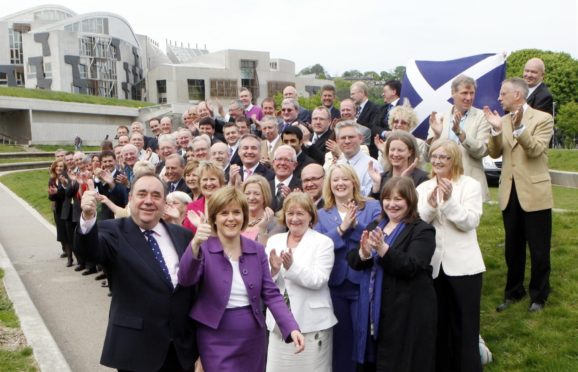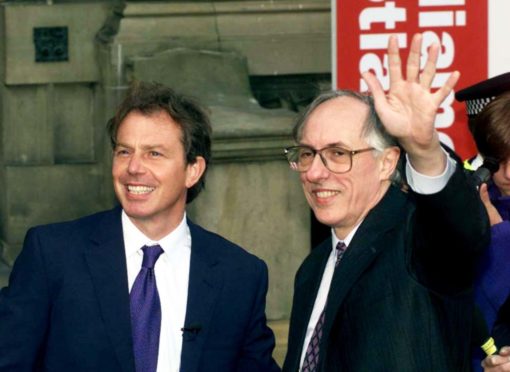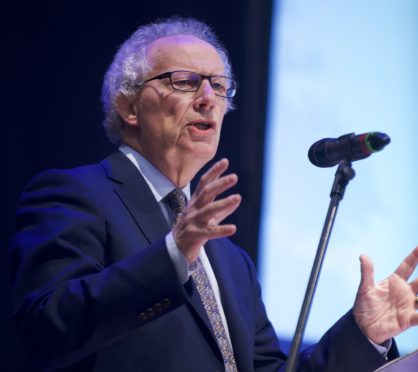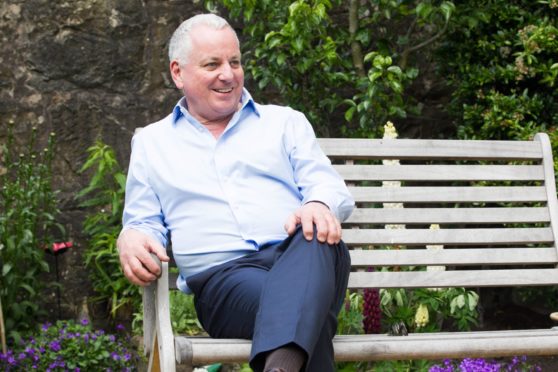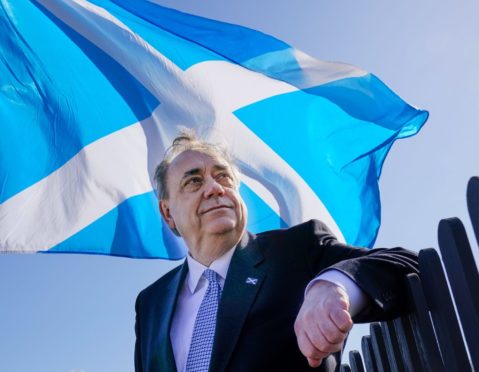Nicola Sturgeon has been officially re-elected as first minister of Scotland.
Despite holding the position since 2014 and being the leader of the largest party in Scotland, Ms Sturgeon did not automatically become first minister following the Scottish Parliament election.
However MSPs voted her back into the top position on Tuesday 18 May after winning 64 of the 129 votes available.
Both Douglas Ross, leader of the Scottish Conservatives, and Willie Rennie, leader of the Scottish Liberal Democrats, stood against her for the position, but neither won enough votes to challenge Ms Sturgeon.
Douglas Ross received 31 votes and Willie Rennie got four, with 28 people abstaining from the vote.
🏴 The Scottish Parliament has re-elected @NicolaSturgeon as the First Minister of Scotland.
💛 Together, let's get on with emerging out of COVID, building a fairer recovery, and securing Scotland's right to choose independence. pic.twitter.com/m8WbB8xsRr
— The SNP (@theSNP) May 18, 2021
In 2016 Willie Rennie also stood against Nicola Sturgeon for the position of first minister, but only won five votes to Ms Sturgeon’s 63.
She will now be sworn in at the Court of Session on Wednesday 19 May and later this week will appoint ministers to her government.
Sturgeon to continue tackling pandemic and highlights party’s hope for independence referendum
In her speech following her victory, Nicola Sturgeon vowed to continue to deal with the coronavirus pandemic, and reiterated her party’s wish to have an independence referendum within the next five years.
She said: “I will continue to work every single day to make the best decisions possible and resolve to never shy away from tough choices.
“Through collective sacrifice and the power of vaccinations we are making progress, but the past few days are reminding us it is not done yet.
“There are dangers we must take seriously and tough decisions lie ahead, so I want to reiterate the pledge I made in the campaign – as long as is necessary, every ounce of my energy will be on navigating us through the pandemic and keeping the country as safe as possible.
“Part of that is laying the foundations for the recovery we all want to build.”
‘A clear mandate for an independence referendum’
She added: “There is a clear mandate for an independence referendum within this term and it is important in the interest of democracy that is respected.
“But it is also important that is done only when the crisis of Covid has passed.
“I believe being independent will give us the best chance of making use of our vast talents.
“I am mindful that those who don’t support independence cannot be ignored.
“But by the same token those who do want independence can’t be ignored either.”
She also paid tribute to her family, saying: “This is the third occasion I have been nominated as first minister and in the previous two my family has been present in the public gallery.
“Circumstances mean that is not possible today – even if it had been, the loss of my father-in-law would make it feel very different.
“I miss my family today.
“Being a close family member of the first minister is a role that unlike me you don’t get any choice over and it is not always easy, but you love, support and sustain me through various stresses and I can’t ever thank you enough.
“But please know how much I love all of you.”
She also thanked her two opponents for standing against her as candidates for first minister, and even said: “Willie Rennie, I say this with sneaky admiration – you see most women, even those of us like me who have been in politics for a long time, would give our eye teeth for the shred of self-confidence of the man who can take his party from five MSPs to four and still throw his hat in the ring to be first minister.”
Opposition leaders offer advice to Nicola Sturgeon for the next five years
Following Nicola Sturgeon’s victory in securing the nomination for first minister, each of the party leaders congratulated her and put forward their suggestions on what she needs to focus on.
Douglas Ross, leader of the Scottish Conservatives, said: “There are fewer greater honours than serving the public in her position and I know she takes that role seriously.
“And while my party will challenge her actions as first minister and those of her government, I will not question that she is sincerely committed to the job that she has done for the last seven years and she is now committed to over the next five.”
He added: “We cannot spend the next five years mired in the same stale debates and disagreements that consumed and held back the last parliament.
We cannot spend the next five years mired in the same stale debates and disagreements that consumed and held back the last parliament.
“This time we need a parliament of action, a parliament of delivery, a parliament of purpose, a parliament that unites this country and leads it in a national mission to get us all through this.
“If that is the task the SNP government applies itself to 100% then it will find support from these benches.
“But if they deviate from that task, if they put political priorities ahead of Scotland’s interests, if they waste time in this chamber on old arguments instead of constructive delivery then we will fight them every step of the way.”
Lives remain at risk
Meanwhile Scottish Labour leader Anas Sarwar, who appeared via video link as he is self-isolating after a member of his household contracted coronavirus, said: “Lives and livelihoods remain at risk.
“There are more than 300,000 Scots who don’t know if they have a job to go back to.
“We have suffered an economic crash harder and deeper than the banking crisis.
“Pupils have missed out on almost a year of school.
Congratulations @NicolaSturgeon on her re-election as First Minister.
If we are going to deliver the recovery Scotland needs, then we need a FM for everyone in Scotland, not a campaigner leading half the country.
I will focus on what unites us to build a fairer & better nation.
— Anas Sarwar (@AnasSarwar) May 18, 2021
“Our NHS and social care systems, battered but not broken, need support, reform and investment.
“And in just months the eyes of the world will be on Glasgow as we host COP26.
“To meet these challenges, and many more, the first minister must be bold.”
Co-leader of the Scottish Greens Lorna Slater said: “I am hoping that the first minister and everyone in this room will consider the nature of the multiple crises that we face, and will commit to working in the spirit of cooperation and constructively across party lines to make the kind of transformative changes that are needed to protect our environment and ensure an economy that works for everyone.”
And Willie Rennie from the Scottish Lib Dems said: “This parliament needs to focus on partnership and recovery.
“On that basis there should be no place in this new government for a minister for a referendum.
“Instead the first minister should appoint a minister for recovery, a senior appointment to focus the government’s energy.
“That would be a powerful signal of the priorities of this parliament.”
Nicola Sturgeon’s journey to becoming first minister of Scotland
Nicola Sturgeon was born in Irvine, North Ayrshire in 1970 and joined the SNP at the age of 16.
At the time, she said she chose to join the SNP rather than Scottish Labour because she felt it was wrong for Scotland to be governed by a Conservative government it had not elected.
She studied law at Glasgow University and went onto work as a solicitor in Drumchapel Law Centre, before she was elected to Holyrood as a Glasgow MSP in 1999 at the age of 29.
When John Swinney resigned as leader of the SNP in 2004 she launched a leadership bid, but withdrew after Alex Salmond decided to run.
However she went on to become the deputy leader of the party and stood in for Alex Salmond as the party’s Holyrood leader while Mr Salmond was a MP in Westminster.
After the SNP’s victory in 2007 she became health secretary and oversaw the reversal of A&E closures and the introduction of free prescriptions.
She then took on the role of first minister in 2014 after Alex Salmond stepped down in the wake of the independence referendum.
In that election, former Scottish Conservative leader Ruth Davidson stood against her for first minister – however Ms Sturgeon won 66 votes and Ms Davidson only secured 15.
After the 2016 Scottish Parliament election she retained her position as first minister, and in the past year has lead the country through the coronavirus pandemic.
She will become the longest serving first minister of Scotland since devolution next year.
Previous first ministers of Scotland
Nicola Sturgeon is the fifth first minister Scotland has had since devolution in 1999.
The ‘first’ first minister was Donald Dewar – he was part of Tony Blair’s Labour cabinet and served as secretary of state for Scotland in 1997.
He became known as the “father of the nation” when devolution happened in 1999, and he went on to become a MSP for Glasgow Anniesland.
However on 10 October 2000 he fell on the pavement outside his official residence and later died from a brain haemorrhage.
Henry McLeish took on the role in 2000, having previously been a devolution minister in the former Scottish Office and playing a key role in delivering the Scottish Parliament in 1999.
However he became embroiled in a row over his Westminster constituency office expenses, known as “Officegate”.
He was seen to be unable to resolve the matter, and was forced to step down as first minister only a year into the job.
Jack McConnell became first minister in 2001 and was best known for introducing the smoking ban and forging links with Malawi.
He stood down as Scottish Labour leader after the SNP’s election victory in 2007 and moved to the backbenches for four years.
Alex Salmond is currently the longest serving first minister of Scotland.
His time as leader of Scotland will be best known for the 2014 independence referendum. In recent years he hit the headlines for his court appearance and for going on to found the Alba Party.
After he stood down following the Scottish independence referendum in 2014, Nicola Sturgeon took up the position and has remained in office ever since.
